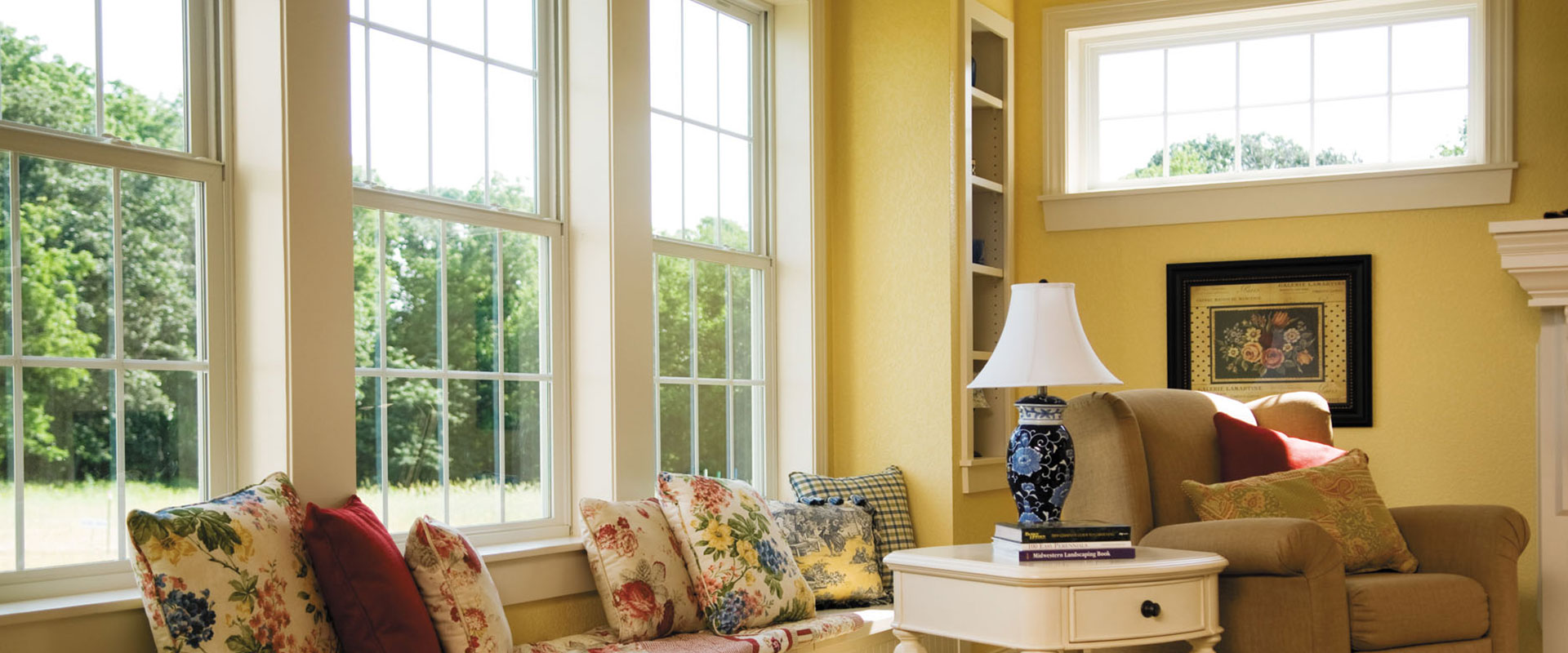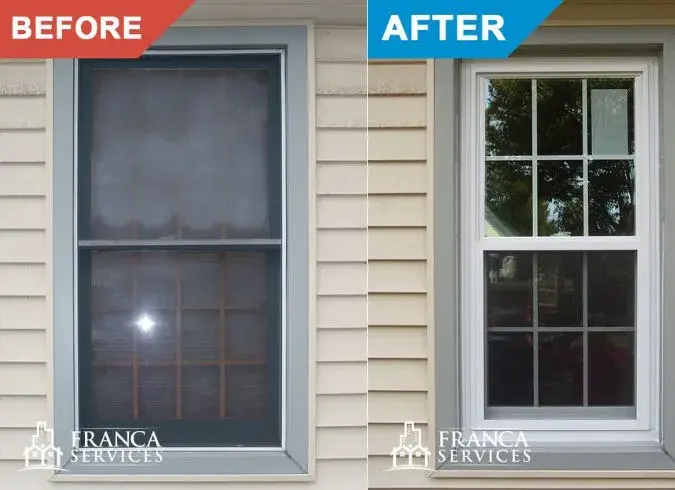Upgrade Your Home With Energy-Efficient Home Window Substitutes
In the world of home improvement, the decision to update to energy-efficient window substitutes can considerably influence both the capability and looks of a house (Richmond window replacement). As homeowners look for methods to boost the effectiveness and sustainability of their living rooms, the option of home windows plays an essential duty in achieving these objectives. Beyond the surface degree of mere visual appeals, energy-efficient home windows supply a wide range of benefits that go beyond simple visual charm. With a mindful selection process that considers numerous aspects, from glass types to installation methods, starting this home upgrade journey might show to be a transformative venture.
Advantages of Energy-Efficient Windows

The installment of energy-efficient home windows offers substantial financial savings on energy bills while boosting ecological sustainability. Additionally, energy-efficient windows can aid control moisture levels within the home, reducing the danger of mold and mildew and mildew growth.
Past the monetary benefits, energy-efficient home windows add to ecological sustainability by reducing carbon exhausts connected with energy manufacturing. By reducing energy use, these home windows assist mitigate the environmental impact of home heating, illumination, and cooling household spaces. This decrease in power consumption plays an important duty in combating environment modification and promoting a greener future for generations to come. Overall, buying energy-efficient home windows not only enhances the convenience and efficiency of a home yet likewise lines up with ecologically mindful techniques.
Kinds Of Energy-Efficient Glass
Numerous advanced sorts of energy-efficient glass deal distinct residential or commercial properties that cater to different needs and preferences in improving the sustainability and effectiveness of buildings. Low-emissivity (Low-E) glass is a popular choice made to lessen the quantity of ultraviolet and infrared light that can pass via the glass, consequently minimizing warmth transfer. This sort of glass assists maintain a regular interior temperature, minimizing the demand for heating or cooling systems, and ultimately lowering energy expenses. An additional ingenious option is spectrally discerning glass, which allows visible light to pass with while obstructing particular kinds of infrared radiation. This assists in maintaining a comfy interior environment while minimizing warmth gain. Triple-pane glass, including three layers of glass with shielding gas between them, provides improved thermal insulation, making it extremely energy-efficient. In addition, self-cleaning glass with a special layer that breaks down and loosens dirt when exposed to sunshine can decrease upkeep requirements and keep windows looking clean. Each sort of energy-efficient glass uses unique advantages, enabling property owners to pick one of the most appropriate alternative based on their specific needs and objectives.
Variables to Consider When Selecting
When contemplating energy-efficient window replacements, it is crucial to meticulously assess specific variables that straighten with your sustainability objectives and preferred power financial savings. One essential factor to take into consideration is the window's power performance scores, such as the U-factor and Solar Heat Gain Coefficient (SHGC) The U-factor steps how well the home window shields, with reduced numbers showing better insulation, while the SHGC indicates the window's capability to obstruct warmth from sunshine. Furthermore, the home window frame material plays a considerable duty in energy effectiveness. Products like fiberglass, plastic, or timber with thermal breaks are superb options for reducing warmth transfer. Another important consideration is the home window design and orientation worrying sunlight exposure. Choosing the right home window design and purposefully placing them can optimize natural light while lessening warm gain or loss. Lastly, installment high quality is crucial to guaranteeing the windows execute as intended. Appropriate installment helps stop air leakage, making certain optimum energy performance. By meticulously reviewing these aspects, you can select energy-efficient windows that improve comfort, minimize power prices, and benefit the setting.
Installation and Upkeep Tips

Normal maintenance is crucial to preserving the effectiveness of your energy-efficient windows. Inspect the weather-stripping and seals for any type of tears or gaps and replace them if needed to keep the windows' energy effectiveness. Houston Pella windows.
In enhancement, lube relocating parts such as hinges and locks to make sure smooth operation. By following these installment and click site upkeep pointers, you can enhance the energy performance of your home and lengthen the life-span of your energy-efficient windows.
Cost-Benefit Evaluation of Upgrading

Energy-efficient windows are designed to lessen heat transfer, decreasing the requirement for home heating and cooling systems to function overtime. This can lead to significant cost savings on power expenses, especially in regions with about his severe temperature levels. Furthermore, energy-efficient windows can enhance the total worth of your home, making it more attractive to prospective buyers if you choose to sell in the future.
When computing the cost-benefit analysis, consider the potential savings on energy expenses, any type of available incentives or rebates, and the lifespan of the home windows. While the first price might be greater, the long-term cost savings and advantages of energy-efficient home windows make them a wise investment for house owners aiming to boost their home's power efficiency and worth.

Conclusion
In final thought, updating to energy-efficient window substitutes supplies numerous advantages such as reduced power consumption, enhanced comfort, and expense financial savings. By selecting the ideal type of energy-efficient glass and taking into consideration variables like frame material and installation, house owners can make the most of the effectiveness of their windows.
When considering energy-efficient window substitutes, it is necessary to meticulously examine certain variables that straighten with your sustainability objectives and preferred energy cost savings. The U-factor measures exactly how well the home window insulates, with lower numbers suggesting far better insulation, while the SHGC suggests the window's ability to obstruct warm from sunshine. By meticulously reviewing these variables, you can pick energy-efficient home windows that boost convenience, lower energy costs, and profit the environment.
While energy-efficient home windows might have a higher upfront expense contrasted to typical windows, the long-term advantages frequently exceed the first investment.In conclusion, upgrading to energy-efficient home window substitutes offers many benefits such as timber double glazing minimized power intake, increased convenience, and cost savings.